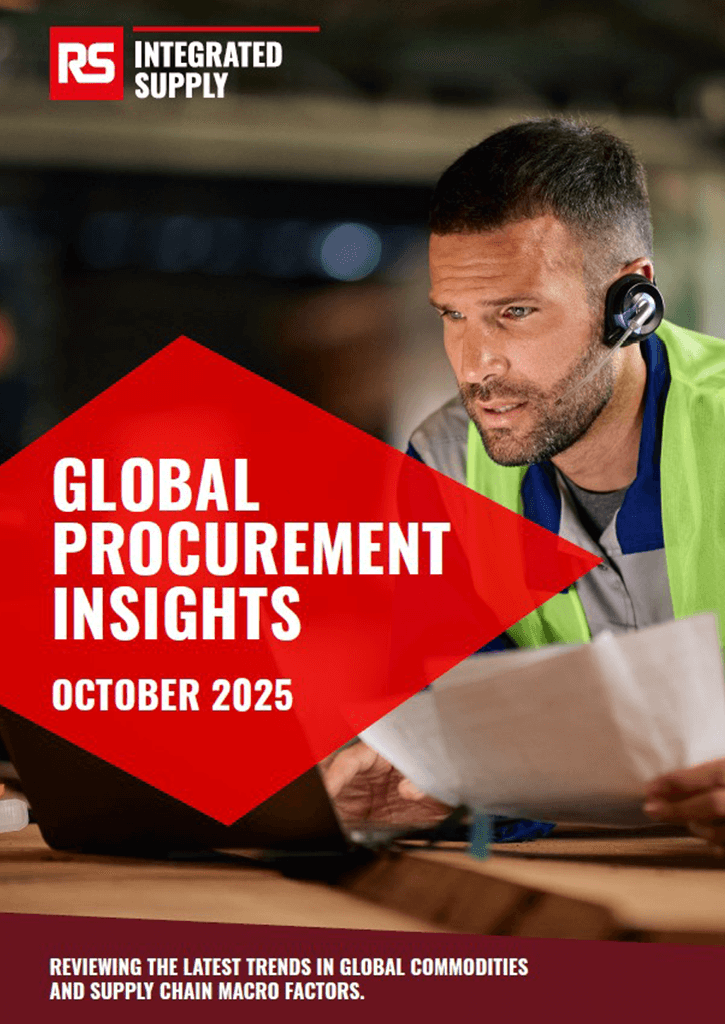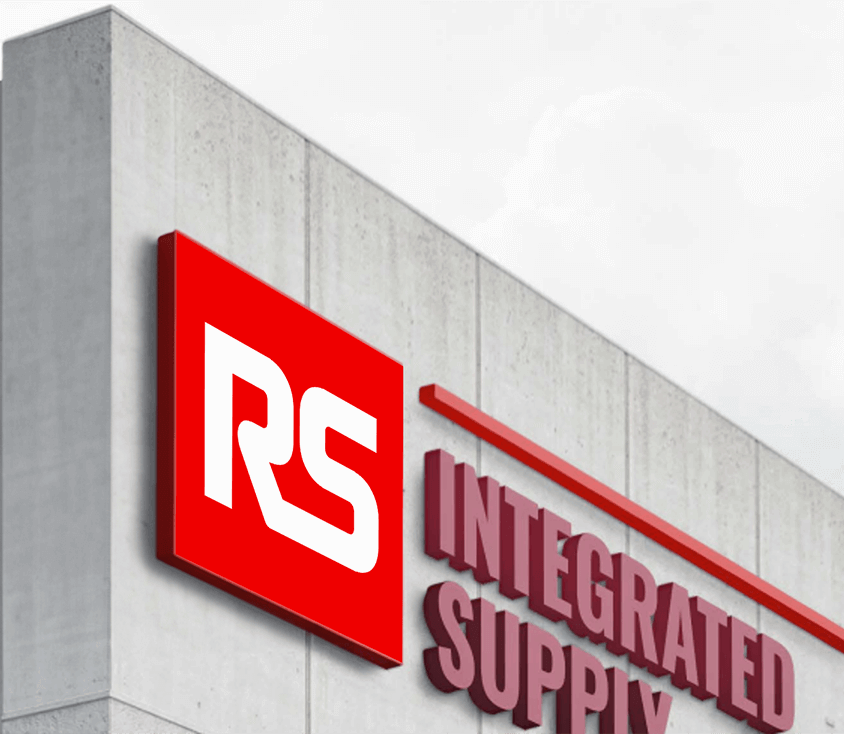Topics Covered
Tags
Published on
Read time: 7 minutes

Failure to monitor ESG across your supply chain exposes your organization to serious risks
The 2022 Indirect Procurement Report, produced by RS and the Chartered Institute of Procurement and Supply (CIPS) and based upon a global survey of indirect procurement professionals, reveals that sustainable and ethical procurement remains a big priority within Maintenance, Repair and Operations (MRO).
More than half of survey respondents (52%) listed Environmental and Social Governance (ESG), which builds upon the UN’s 17 Sustainable Development Goals for making the world more equal, cleaner, and safer by 2030, as a key business challenge. It comes second only to reduced operational budgets (53%). Furthermore, 38% of participants agreed that delivering on their organization’s ESG goals is important and 57% were confident of being able to do so.
Your supply chain plays a critical role in this process. If your suppliers fail to uphold the ethical and sustainable standards that your business aspires to then your organization will fail to achieve its targets too. Find out why.
Importance of Ethical Supply Chain Partners
Although ESG rated slightly lower as a business pressure in 2022 than in 2021, paradoxically this “may reflect the fact that it’s becoming embedded as a business-as-usual factor,” suggested Martin Wakelin, UK Head of Indirect Procurement at dairy producer Müller.
“Our focus is on… only dealing with ethical supply chain partners”
RS and CIPS survey respondent
There’s also evidence within the Indirect Procurement Report to support this argument, with the survey demonstrating that for many organizations, activities such as waste recycling, reducing energy use and using renewable energy are now mainstream behaviors. As one respondent commented, “Our focus is on preventing or limiting harmful pollutants within and around the place of work, lowering greenhouse gas emissions, encouraging diversity and only dealing with ethical supply chain partners.”
“By 2025, at least 70% of our spend will be with suppliers and vendors who are actively managing, reporting and reducing carbon emissions,” said another survey participant.
The Risk of Neglecting ESG in Supply Chain
These statements indicate just how important rigorous ethical and sustainable standards within your supply chain are to your organization’s ESG goals. As Costi Campi, Senior Vice President, Global Procurement, RS Integrated Supply, puts it, an ethical supply chain means ensuring that suppliers share your ethical standards. “Your suppliers need to show their commitment to ESG. They need to be able to demonstrate that commitment by the actions they take every day,” she says.
Failure to thoroughly monitor ESG across your supply chain brings tangible business risks. If, for example, a supplier is discovered delivering materials made with forced labor, the buyer is breaching their own ethical procurement policy and their organization may suffer considerable reputational and financial damage.
This can affect investment as much as custom. According to PwC research, 49% of investors would be willing to divest their holdings from companies who fail to take enough action on ESG and 59% said they would vote against executive pay resolutions. The same research also revealed that 79% of investors regard ESG risks and opportunities as an important factor in their investment decisions in the first place.
“Companies that fail to live by their own ESG values and standards are putting themselves in an unfavorable position.”
Andrea Barrett, VP of Social Responsibility and Sustainability, RS Group
“Companies that fail to live by their own ESG values and standards are putting themselves in an unfavorable position,” says Andrea Barrett, Vice President of Social Responsibility and Sustainability for RS Group. “Investors, and even consumers, are looking at and considering ESG commitments and performance when doing business.”
Improving supply chain ESG is not, however, simply a commercial endeavor, says Tom Cummins, Senior Director Global Procurement at RS Integrated Supply. “It’s not purely about tapping into an opportunity for business growth. It is also the right thing to do,” he points out.
“We’re talking about a planet that has a problem and all businesses need to take action to decarbonize, reduce risks and invest in opportunities that support the transition to a low-carbon economy.”
Building Resilience Through ESG
If money is one motivation and morals another, building resilience provides a third reason to focus on ESG within your supply chain. “ESG helps drive supply chain resilience,” Cummins says. “It allows procurement to identify additional local suppliers, which reduces the carbon footprint. But if those suppliers charge a premium for that sustainability, it adds an extra burden farther down the supply chain.
“Companies must decide whether to place a value on sustainability or not,” he says.
“Sustainability needs to have assigned value so procurement teams can achieve their targets.”
Tom Cummins, Senior Director Global Procurement , RS Integrated Supply
“Many companies are still indecisive, but that does not help the procurement teams,” he added. “Sustainability needs to have assigned value so your procurement teams can achieve their targets.”
The Transformational Potential of ESG
Helen Alder is Head of Knowledge & Learning Development at CIPS. While she agrees with Cummins that ESG and resilience go together, she believes that organizations often don’t pursue this as far as they could.
“What’s missing is thinking about the transformational aspect of it”
Helen Alder, Head of Knowledge & Learning Development, CIPS
“What comes out of the RS and CIPS survey is that companies are still being quite tactical about sustainability, focusing on things like waste recycling or buying renewable energy,” she says. “What’s missing is thinking about the transformational aspect of it.”
Procurement teams need to think bigger, she argues, asking themselves questions such as “What could we do that would completely transform our business into something so much more sustainable?”
Part of the reason for this, states Alder, is the pressure placed on supply chains over the last few years, whether that is because of the coronavirus pandemic, the conflict in Ukraine or the surge in inflation.
“If people are looking at just trying to keep their supply chains going, then it doesn’t surprise me that [ESG] dropped off the top [of the agenda], because I just think it’s so hard at the minute,” she says.
“A lot of firms are on the edge financially, so they’re in survival mode. And maybe investing in long-term strategies at the moment isn’t where they need to be. They’re just literally trying to survive, especially smaller businesses.”
Despite the perception that ethical procurement is more expensive, however, it doesn’t have to be. “People often think that an ethically balanced opportunity costs more,” said Josh Levin, Senior Director of Supply Chain at RS Integrated Supply.
“It is an opportunity for introducing new ideas.”
Josh Levin, Senior Director of Supply Chain, RS Integrated Supply
“I don’t believe that is the case,” he added. “Meeting the demands of ESG, particularly at a company as dedicated to it as RS Integrated Supply, means procurement teams have to look at other elements involved, including costs.
“For example, maybe we manage demand in such a way that we reduce waste. That means we’re not buying as much or disposing of unused materials. It is an opportunity for introducing new ideas.”
Creating a Successful Procurement Plan
“Talk to your suppliers, peers, anyone who may be a little farther down the path.”
Tom Cummins, Senior Director Global Procurement , RS Integrated Supply
Tom Cummins, Senior Director of Global Procurement at RS Integrated Supply, added that creating effective ESG procurement plans requires learning from others. “Talk to suppliers, peers, anyone who may be a little farther along the path. Learn from their missteps,” he says.
Additionally, Cummins said that ESG needs to be included in employee objectives and strategic plans. That requires senior management support. He recommends adopting the 80/20 rule and start with the actions that will have the biggest impact.
Don’t get discouraged, he says. “It will get easier. There is a lot of momentum for ESG and that will only continue to grow.”
Conclusion
Monitoring ESG across your supply chain is crucial to achieving your organization’s ESG goals and avoiding business risks. Building resilience through ESG is not just a commercial endeavour but also the right thing to do for the planet. It is important for organizations to value sustainability and to think about the transformational aspect of ESG in their procurement processes.
By doing so, organizations can ensure that their supply chain is not only compliant with ESG standards, but also that it is actively contributing to a more sustainable future.
Additionally, organizations should strive to create a culture of ESG awareness and engagement throughout their supply chain, from suppliers to customers, to ensure that ESG is embedded in all aspects of their operations.




